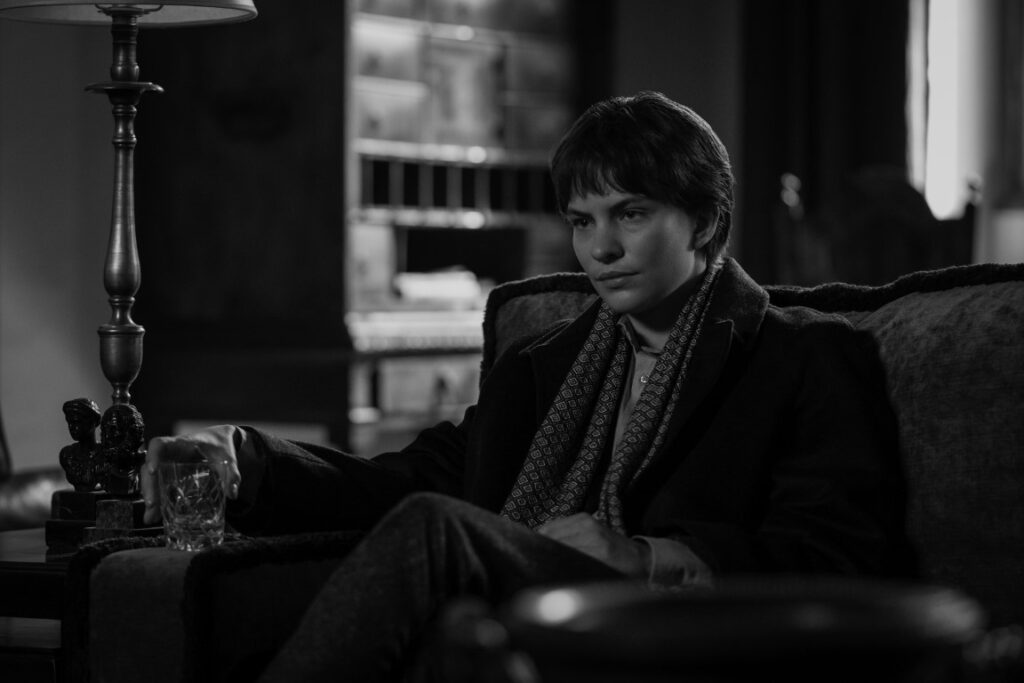Read also:
How to Watch FX Live Without CableHow To Watch AMC Without CableHow to Watch ABC Without CableHow to Watch Paramount Network Without CableTom Ripley doesn’t exist. Not just in the sense that he’s a fictional creation of thriller novelist extraordinaire Patricia Highsmith, no; as a man, Ripley is a chimera, a shadow, a formless void that hungrily sucks in whatever nourishment it can from whatever or whoever is around him. Damn the consequences. He’s one of literature’s (and, in the case of several cinematic adaptations, moviedom’s) greatest conmen, a remora with nothing behind the eyes except the next game, the next mark, the next place to flee when suspicions run too high. Now, writer/director/showrunner Steven Zaillian has adapted the first of Highsmith’s novels into an eight-episode miniseries for Netflix (it was originally slated for Showtime before they sold it), and by virtue of those pedigrees, it’s maybe the best original series the streamer has put out all year.
When we first meet Tom Ripley (Andrew Scott), he’s a low-level grifter eking out a living with some street-level mail fraud in New York City. But one day, a private dick (Bokeem Woodbine) taps him on the shoulder and hauls him in front of a wealthy shipping magnate (filmmaker Kenneth Lonergan) for a special mission: travel to Italy on his dime to find his layabout painter-wannabe son Dickie Greenleaf (Johnny Flynn) and bring him back home to fulfill his business responsibilities. Ripley doesn’t know the man, but he agrees — the chance to start all over somewhere else (and be bankrolled for it) is too great. So he swans off to Atrani, a small beachside villa where he ingratiates himself to the pampered Dickie and his writer girlfriend, Marge (Dakota Fanning), two people as insulated by their wealth as they are by their respective artistic mediocrities.

Unlike previous adaptations of the material, Zaillian barely (if ever) clues us into any kind of deeper humanity lurking under the surface for Tom Ripley. Matt Damon’s version from The Talented Mr. Ripley was motivated by emotional impulse; here, Scott plays him like a reptile. There’s something downright alien about his cold tilt of the head, those shark-like eyes (aided by Robert Elswit’s chiaroscuro photography, which we’ll get to later), the way his delivery teeters between blase deference and a flat, manipulative affect. He seems less like a desperate hanger-on than a predator, one all too happy to take rich people for everything they’ve got and discard them when he’s sucked all the meat off their bones. He doesn’t covet the lifestyles of the rich and famous, and even the script’s frequent allusions to Ripley’s subtextual lust for Dickie don’t seem to fully account for his motivations.
Instead, his most honest, wounded moments come when he sees the rich people around them wasting their wealth. In one episode, he can barely contain a sneer when he sees Dickie and Marge shopping for a refrigerator. “A fridge isn’t freedom,” he bites back at them. Domesticity, security — these are curse words for Thomas Ripley. It’s all about the method, as Ripley‘s episodes meticulously follow his schemes, step by step, so we can see exactly how he does it and every possible circumstance he must account for (and how he deals with the few he can’t).
This coldness is reflected in Elswit’s staggering cinematography, crafting high-contrast, elegantly framed compositions in nearly every shot — the way his camera captures the beauty and immensity of the show’s many Italian locales evokes the works of Michelangelo Antonioni and Federico Fellini. Precision is the name of the game in every shot, whether it’s Ripley silhouetted against the bright-white Atrani sky or a close-up of a particularly observant gatto who is maybe the only living witness to any of Ripley’s crimes. It’s a bit like watching the world through Ripley’s own eyes: drained of color and beauty, a blank page that can be filled in with whatever shades required to survive until tomorrow. (The deep, abyssal blacks also remind you of the works of Caravaggio, whom Zaillian smartly parallels with Ripley throughout his journey.)

Zaillian, a veteran screenwriter and filmmaker whose talent has touched masterworks like Schindler’s List and The Irishman, as well as other TV projects like HBO’s The Night Of, crafts an expertly-paced tightrope act that defies the usual pacing problems of streaming miniseries like these. Where many Netflix shows are leaden, this one is merely patient; it keeps you hooked because it, like Ripley, is biding its time. When Ripley engages in one of his rare, but powerful, bursts of violence, the cleanup may well take the rest of the episode. But it’s minute-to-minute exciting, with new complications thrown in along the way that make you almost — almost — feel for Ripley in his momentary plight.
Really, it’s that strain of dark humor that keeps the whole thing from feeling like an exercise in misery. Granted, there’s always a kind of gleeful transgressiveness in watching works about monsters, but Zaillian lets us in on the grand class joke of Ripley’s schemes. Scott’s coldness slides perfectly into a kind of cattiness at just the right moments, like when we share his disgust for Dickie’s horrible paintings (which look somewhere between a fifth-grade art project and DALL-E trying to recreate the “French girls” painting from Titanic). The aforementioned attempts to dispose of the rare body or two are prime comedies of errors, and the Italian inspector (Maurizio Lombardo) cool on Ripley’s heels treats his American subjects with a delightful bemusement. (Love the way Elswit lets us peek at the inspector’s notebook after hearing Richard Greenleaf’s nickname: “DEEKEE.”)
All told, Ripley positions its intriguing central character as a nowhere man, making nowhere plans for nobody. He’s intriguingly hard to pin down, even when Elswit’s evocative eye and Scott’s chameleonic performance tease out a broader ‘why’ for their protagonist’s worldview. But maybe that’s the point. All he knows, all he’s ever known, is lying to people. If it means he has to swan off to the next place as soon as people catch wise, what’s the harm in that? To Tom Ripley, that spells freedom.
All episodes of Ripley are now streaming on Netflix.